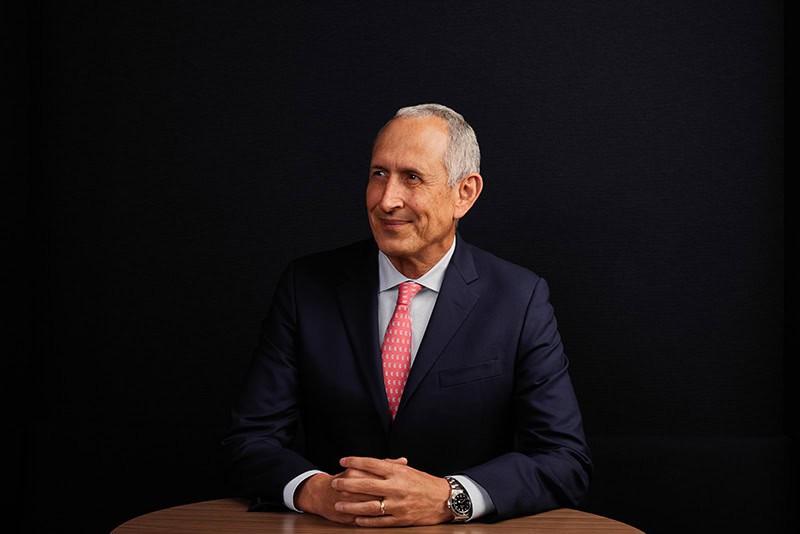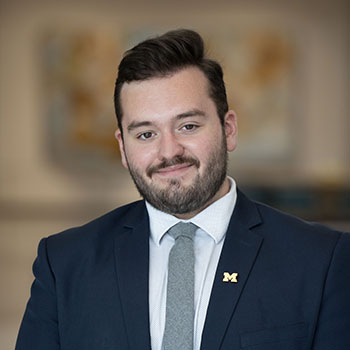
Alumni Spotlight: Pedro Alvarez
In his time at U-M CEE, Alvarez obtained not only department recognition and accolades but the skills and mindset necessary to succeed in the academic world.

In his time at U-M CEE, Alvarez obtained not only department recognition and accolades but the skills and mindset necessary to succeed in the academic world.
From his early childhood in Nicaragua to his grad school years at the University of Michigan, Pedro Alvarez has always been interested in water. Now, Alvarez’s passion has led to a prolific career in academia and invaluable contributions to the bioremediation and environmental nanotechnology fields, and he continues to push the boundaries of water treatment and pollution control research today.
Alvarez began his career as an environmental engineer at TetraTech, Inc., after graduating with a degree in Civil Engineering from McGill University in Montreal, Canada. He worked in Southern California for 4 years on a U.S. Congress directive to evaluate potential environmental impacts associated with the deployment of intercontinental ballistic missiles before coming to U-M CEE to continue his engineering education. While at Michigan, he obtained M.S. and Ph.D. degrees in Environmental Engineering in an intense 3 and a half years and earned both a Rackham fellowship and the Outstanding Achievement Award in Environmental Engineering at Michigan.

“During my studies, I had two daughters, which was definitely an incentive to do well and do it fast,” said Alvarez of his years at U-M. His many responsibilities never hindered his success, however — in fact, they equipped him with skills that would prove integral to a career in academia.
“Research requires you to be very efficient with time and to really understand opportunity costs,” explained Alvarez. “I learned that hard work and time management go a long way.”
In his time at U-M CEE, Alvarez obtained not only department recognition and accolades but the skills and mindset necessary to succeed in the academic world.
“[U-M CEE] reinforced my commitment to excellence,” said Alvarez. “It helped me understand how to navigate complex environments full of high-profile performers, and how to succeed in those environments.”
Following his graduation from U-M CEE, Alvarez started his academic career at the University of Iowa, where he also served as Associate Director for the Center for Bioprocessing and Biocatalysis. He later moved to Rice University in 2003, where he still teaches today as the George R. Brown Professor of Engineering. He also serves as founding Director of the NSF Engineering Research Center on Nanotechnology-Enabled Water Treatment (NEWT) and as Director of the Rice WaTER Institute.
Alvarez’s current research interests encompass environmental implications and applications of nanotechnology, bioremediation, fate and transport of toxic chemicals, water footprint of biofuels, water treatment and reuse and antibiotic resistance control. His discoveries in his fields have been groundbreaking — while at the University of Iowa, Alvarez was the first in his field to gain understanding of the water footprint of ethanol, pioneering research on the groundwater quality impacts associated with ethanol-blend releases. Alvarez continues to serve as a leader in his field — as founder and director of the NSF Engineering Research Center on Nanotechnology-Enabled Water Treatment, he leads researchers across the country in the center’s research to facilitate global access to clean water.
“We are essentially using nanotechnology to purify water in a more efficient and less costly way,” said Alvarez of NEWT’s work. “Our dream is to create clean water on demand — clean water can save more lives than doctors.”

When discussing his impactful research, his career and his long-held interest in water resource sustainability, Alvarez repeatedly emphasized the importance of pursuing one’s passion.
“Academia can be very Darwinian,” said Alvarez. “You don’t pick the area you are going to excel in; it picks you. A lot of times, you can be good at something you hate, or love something you’re bad at. So it’s important to align your passion with your vocation in order to succeed.”
To those students who aspire to a similar career, Alvarez’s advice is straightforward.
“There is no substitute for hard work, and being generous and helpful to others always will go a long way,” he said. “And, finally, I would tell the students that leadership is not given. Leadership is taken. So if you see an opportunity, don’t wait for somebody to tell you what to do, or to give you permission. Just do it.”

Marketing Communications Specialist
Department of Civil and Environmental Engineering